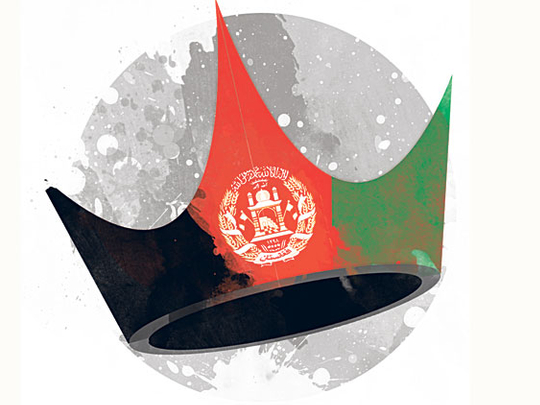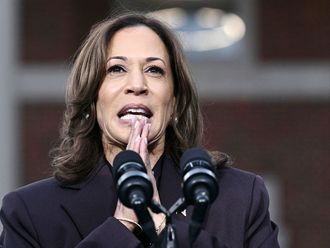
US forces in Afghanistan just got another competent military commander in General David Petraeus. However, the current US strategy that Petraeus must enforce only guarantees mission failure in the long run because it bolsters an unpopular Afghan government. This, in turn, ensures increased support for the insurgency led by the Taliban, who love to boast that they have time on their side.
It's time that western leaders answer a politically incorrect but vital question: Do they care more about establishing democracy than stability? Because if the mission is still about ensuring that Afghanistan — as a relatively cohesive state — remains free from Taliban and Al Qaida, then the West should be willing to consider a dramatic step: reinstatement of a constitutional monarchy.
Best option
Pushing for a constitutional monarchy runs counter to America's traditional antipathy toward monarchies as a form of governance, but in the case of Afghanistan, it's probably now the only alternative to the Taliban rule that seems almost inevitable once Nato forces withdraw.
After weathering nine years of war, the Taliban have grown stronger, not weaker. They are getting more brazen in their attacks. Girls increasingly resist going to school, terrified that their classes might be bombed, or acid thrown in their faces, as they walk home. Shopkeepers have stopped selling videos and other forbidden items.
Meanwhile, the Karzai government, which won re-election amid wide reports of ballot fraud, continues to lose popular support. Corruption is rife.
In this environment, Afghans are hedging their bets. They don't want the Taliban to return to power, but they understand that survival means siding with the winner.
It didn't have to be this way.
In 2001, most Afghans welcomed US forces as saviours, not crusaders.
Thanks to their presence, Afghans were able to resume cherished pastimes banned under the Taliban: They played soccer, flew kites, danced the Attan, and, most importantly, they laughed out loud. Afghans could tend to their beloved rose gardens, or drive their buses and cars, blaring loud music. Women could seek medical help, and widows could find employment, without running the risk of being beaten, or worse: stoned or shot to death in the soccer stadium.
After the fall of the Taliban, the overwhelming majority of Afghans — across ethnic lines — wanted to reinstate the constitutional monarchy that had served Afghanistan so well in the past.
During the long reign of King Zahir Shah (1933-1973), Afghanistan blossomed into a modern state. It became the largest exporter of raisins in the world, and was renowned in the region for its carpets, fruits, melons and semi-precious stones. Kabul rivaled Islamabad as a city of modernity and culture, and was considered by westerners in the 1960s as the Geneva of Asia.
Afghans saw their king as fair and inclusive. Under Zahir Shah, the central government established Afghanistan's first professional standing army, yet generally left the provinces alone in their handling of day-to-day affairs.
So memorable was this period that Afghans at the Bonn Conference in 2001, which was set up to plan the future of Afghanistan's government, clamoured to reinstate Zahir Shah and the 1964 constitution that set forth equal rights for all Afghans before the law. Yet this broad desire was stymied.
At this stage, Washington and its coalition partners have tough choices: 1) Leave or 2) Fix the political mess they helped to create.
Delaying the inevitable
The US military surge that Petraeus now directs will probably just delay the descent into chaos once Nato begins pulling out in 2011. Saving Afghanistan now requires encouraging Karzai and his political and military leadership to accept some painful options that might include comfortable exile. It requires holding another Afghan loya jirga to determine if Afghans want a constitutional monarchy reinstated under a charismatic descendant of Zahir Shah.
If Nato is serious about its mission it needs to ensure that Afghanistan's commander-in-chief is seen as legitimate in the eyes of Afghans.
Shireen K. Burki served at the United States Marine Corps' Centre For Advanced Operational Culture Learning from 2006 to 2008 as an expert on South Asia and Southwest Asia.









